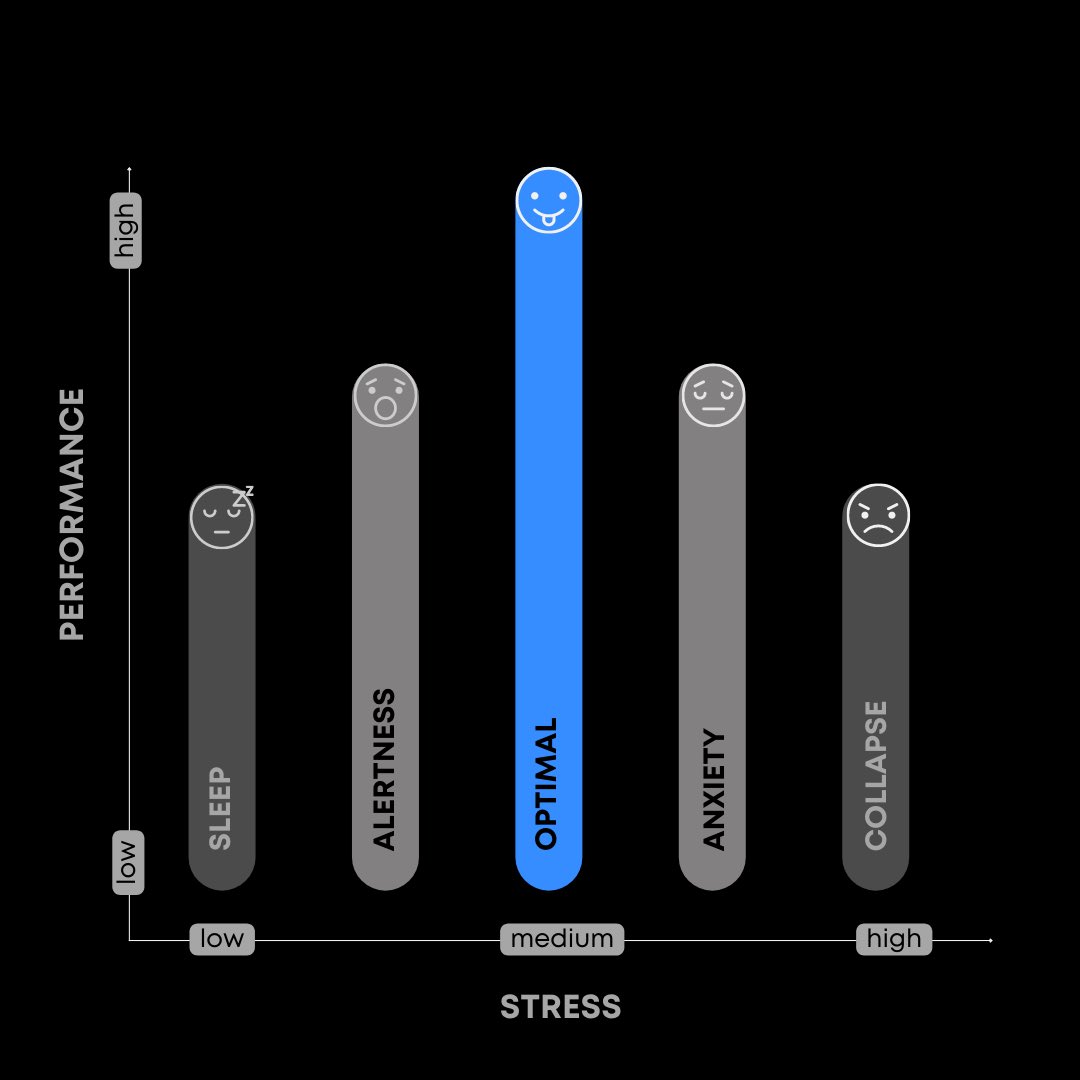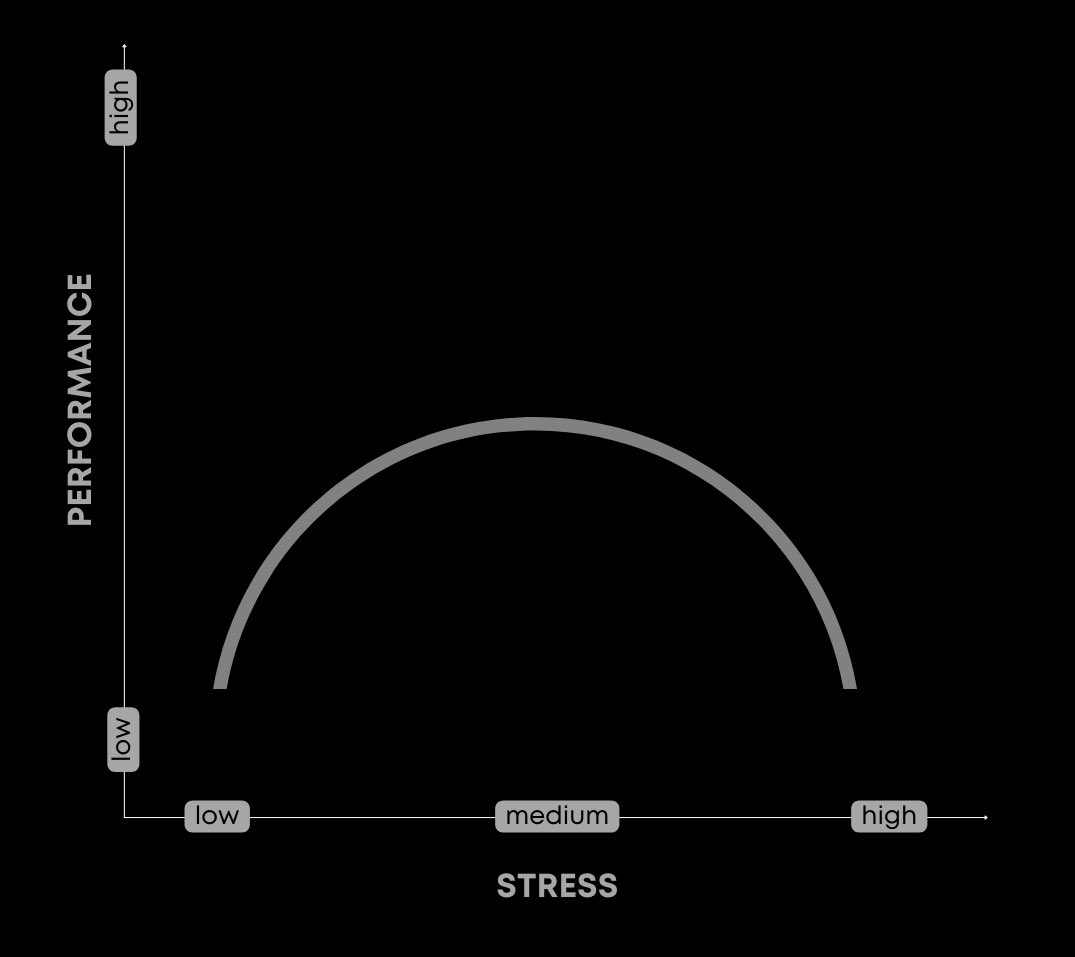Student Village Academy › Forums › HEALTH AND RELATIONSHIPS › If you want to perform better under pressure, read this
- This topic is empty.
-
AuthorPosts
-
-
August 14, 2022 at 8:20 PM #39295
 justseyiKeymaster
justseyiKeymasterIf you want to perform better under pressure, read this;
The Yerkes-Dodson Law is a simple model of the relationship between performance and stress.Source; TwitterIt was created in 1908 by psychologists Robert Yerkes and John Dodson, who formulated their conclusions on the basis of the study of Japanese dancing mice.
In simple terms, the Yerkes-Dodson Law says that stress and performance are positively correlated, but only up to a certain point, after which more stress reduces performance.We like to procrastinate a bit on big projects or tasks.The pressure of the deadline gets us into a focused state that pushes us through to the finish.
If we procrastinate too much, the pressure becomes overwhelming and our performance suffers as the deadline approaches.
We perform better in the game than during the practice.The bit of added stress—from the bright lights of the arena—elevates our performance.
But if the situation gets too pressure-filled, we may start to crumble.
There are effectively three states of stress to be aware of:Low Stress:This is a state of low arousal.
This state is necessary for recovery, but it is generally not conducive to performance.
Working on important tasks while in this state is not ideal.
Optimal Stress:This is the optimal state of arousal.
It’s the “Goldilocks” level—not too hot, not too cold, just right.
When you’re in this state, you are well-positioned to work on important tasks.
High Stress:This is a state of high arousal.
This is typically where we see a biological fight-or-flight response kick in.
It may lead to a complete shutdown from system overload.
Working on important tasks while in this state is not ideal.
As you think about optimizing your own performance, mapping your curve is an important first step.For a week, log your levels of stress while completing various activities through an average day, and then log your relative performance on these activities.
 Look for trends.
Look for trends.Create a mental map of your curve—develop an awareness of where you are on the curve at any point in time.
When working on important tasks, leverage this awareness to spend more time in an optimal stress state and less time in a low or high-stress state.
Importantly, while the three general states are the same for everyone, the absolute levels of stress that place you into a state can be different.Lewis Hamilton is capable of performing at an optimal level under much higher relative stress than an average knowledge worker.
 There are countless examples of athletes who seem to rise to the occasion in the biggest moments—Michael Jordan, Serena Williams, and Tiger Woods come to mind.
There are countless examples of athletes who seem to rise to the occasion in the biggest moments—Michael Jordan, Serena Williams, and Tiger Woods come to mind.There are genetic factors at play, but you can also train yourself to handle and manage stress more efficiently:
Place yourself into controlled stressful environments and work on managing your mental and physical faculties.Example: Get into a cold shower or ice bath and see if you can focus and perform a mental task (simple math, reciting a poem, etc.) for a fixed period of time.
This type of training may flatten the right side of your curve—slow the decay in your performance—enabling you to perform in a wider variety of situations.Learning to manage stress is the first step.
Learning to wield it as a weapon in your personal arsenal is the next step.
I hope this gives you a better understanding of pressure and performance—and a path to leveraging pressure to your advantage.
One additional note:The years of training under a variety of stress loads is one of the reasons I believe athletes tend to make great hires.
They are literally trained to handle and manage stress and perform through it.
The same note applies to ex-military/veterans!
-
-
AuthorPosts
- You must be logged in to reply to this topic.

